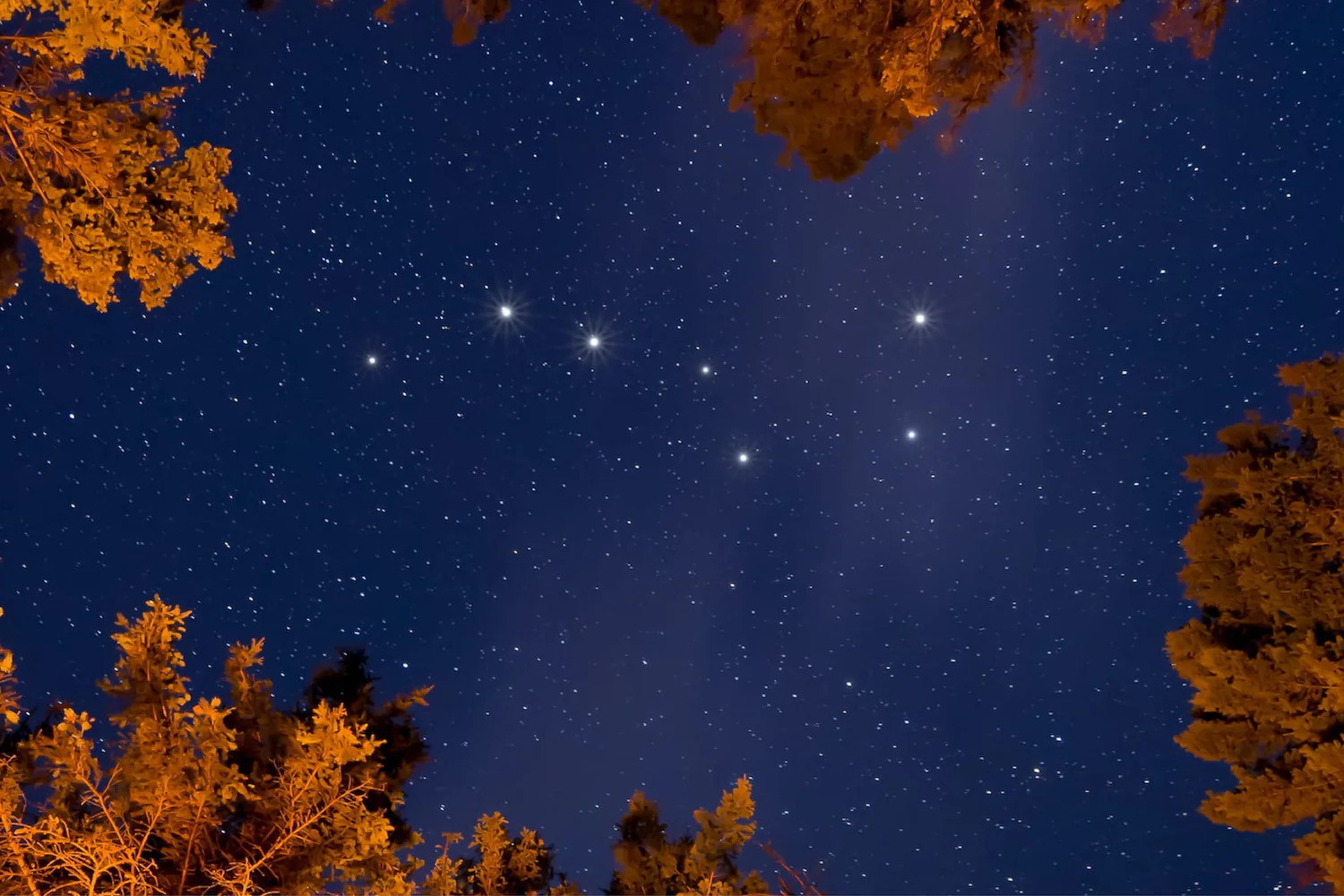#Culture
The Things He Would Say – [Part 3]: Ulterior Motive
Murid makes a deal with the exiled prince, and received a surprising and unsettling letter.
Published

A father with a severely autistic son dreams of going to Hajj, but will it ever happen?
Previous Chapters: Part 1 | Part 2
Ulterior Motive
Abu Ali gaped at him in consternation. “What do you mean no? You just said that this is your dream, the thing you yearn for. Take the money, go to Hajj.”
Keep supporting MuslimMatters for the sake of Allah
Alhamdulillah, we're at over 850 supporters. Help us get to 900 supporters this month. All it takes is a small gift from a reader like you to keep us going, for just $2 / month.
The Prophet (SAW) has taught us the best of deeds are those that done consistently, even if they are small. Click here to support MuslimMatters with a monthly donation of $2 per month. Set it and collect blessings from Allah (swt) for the khayr you're supporting without thinking about it.

“No one gives away money,” Murid pointed out. “There are always strings attached. That’s a heavy envelope. More than I would need for Hajj.”
Abu Ali did not reply immediately, and Murid was surprised to see a blush darken the big man’s face.
“Well… You see… I do have an ulterior motive. My daughter Hiba is interested in you. I would even say enamored. After talking to you, I see that you are a man of principle. The fact that you stem from noble lineage does not hurt. So whatever money remains after you complete Hajj, I ask that you use it as a mahr to marry Hiba. This is just between me and you, she does not know.”
Murid could not have been more surprised if Abu Ali had picked him up by his ankles and swung him upside down like a pendulum. He opened his mouth, then closed it. That smart, lovely young woman wanted to marry him? Why?
“She understands about my son, right?”
“Of course. I argued against marrying you for that reason. I’m a pragmatist. As fallen royalty I have to be, it comes with the territory. But she is a romantic, she says that you are special. And I respect her desires.”
Murid tried to clear his thoughts. There was a lot coming at him at once. “This is really odd,” he said at last.
“Why?”
“You are a rich man, from a noble family. Rich people, as a rule, want to increase their wealth by forming alliances that are favorable to their family. So they want their children to marry rich people. They have rich friends, they move in rich circles. They don’t care about someone like me, and don’t marry their children to a divorced man with two children and no money.”
Abu Ali nodded slowly. “Why,” he said, “did the Prophet, sal-Allahu alayhi wa sallam, surround himself with outcasts and former slaves? His closest companions included people like Abdullah ibn Masood, Suhayb Ar-Rumi, and Bilal ibn Rabah. Why did the Khalifah Umar ibn Al-Khattab, Allah be pleased with him, marry his son to the daughter of a milk-seller? You know that story, right?”
“‘Sure.”
“You see, our righteous predecessors taught us to value sincerity above all. Just because I am rich, does that mean that I cannot strive to see the world as the Prophet saw it, and to value what he valued? Like I said, I was initially opposed to my daughter’s wishes, not because of your lack of wealth, which is meaningless to me, but because of your divorced status and children. But in the end Hiba’s heart is more important to me than such external circumstances.”
Emotions battled in Murid’s chest: amazement that this young woman who he barely knew was apparently in love with him, or at least impressed enough to consider him for marriage, and that her father was enlightened enough to allow it.
Also within him was the yearning to meet Allah in the land of the two sacred precincts, and surging hope that this was now within his grasp. But also honor, and pride. When he finally went to Hajj, he wanted it to be the product of his own labor and sweat, as well as Allah’s help. When he married he wanted to pay the mahr himself, as a gift from himself to his future wife, not a “wink wink” runaround.
Furthermore, he could not marry Hiba just because of the surface qualities he had observed. He had to know her better, and introduce her to his kids so he could see how she behaved around them. It didn’t matter that her family was rich, or royalty, or whatever. Whatever choice he made, it had to be good for his kids. That was the bottom line, and was one of the two criteria by which he weighed every decision in life: one, does it please Allah? Two, is it good for my kids?
“Jazak Allah khayr,” he said at last, “but I must make Hajj under my own steam.”
The Deal
Abu Ali pursed his lips. “Do you know the story of the old woman who prayed to Allah to be saved from the flood?”
“No, is it a hadith?”
“Not at all. Just an old joke. But there’s a lesson in it. An old woman was warned that the dam would break and the town would be flooded. A group of firemen came to her with a fire truck and asked her to evacuate with them. She refused and said, ‘Allah will save me.’ The firemen left, shaking their heads.
The dam broke and the water rushed in. The woman went up to the second floor of her house. Rescuers came with a boat and asked her to come. She said, ‘There is no need, Allah will save me.’ So they left.
The water rose. The woman went onto the roof. A helicopter came to save her but she refused, saying, ‘Allah will save me.’
The woman drowned and went to heaven, and asked Allah, ‘Why didn’t you save me?’ He said, ‘I sent you a fire truck, a boat and a helicopter…’”
Murid chuckled but waved his hand in dismissal. “That’s not this. I’m not waiting for a miracle. Just until I can pay my way, like anyone else.”
Abu Ali sighed heavily. “Then I have another request. And it is not another strategy to convince you.” He jabbed Murid in the chest heavily with one finger, rocking him on his heels. “Go for me.”
“Explain.”
“I can never go to Hajj, brother. My family warred against Aal-As-Saud, and lost. Furthermore, one of my uncles is active in the Saudi democracy movement. If I ever set foot in my homeland I would be arrested and executed. So I will pay you to go to Hajj, and you dedicate it to me. I will receive the reward, not you. But here’s the thing. Aside from the completion of the required rituals, your time is yours. When you stand on Arafah, make dua’ for me and for yourself as well. When you stand beside the grave of Ar-Rasool, sal-Allahu alayhi wa sallam, convey salam to him from me and from yourself as well. This is neither sadaqah nor a loan. It is a gift you would grant me.”
Murid thought about this. A smile spread across his face. “It’s a deal. But the thing with Hiba is separate. I make no promises in that regard.”
Abu Ali extended his hand and Murid took it, bracing himself for the crushing of his fingers, but Abu Ali was gentle, and when Murid looked up he saw tears on the man’s cheeks.
Before Murid left Abu Ali reached into his valise and brought out a letter. “This is from Hiba. I don’t know what it says. Hopefully nothing inappropriate.”
A Song of Hope

Mina ran to him, throwing her arms around his waist, while Junaid continued drawing, not even looking up. But did his ears move? Did his head turn imperceptibly?
Mina pulled away. “What happened?”
“What do you mean?”
“You seem discombobulated.”
“Alhamdulillah. All is well.”
Later, when Juliana was gone, Murid and Mina prayed together as Junaid lay on his back next to them, making shapes with his fingers. When they were done, Junaid climbed into Murid’s lap and put his arms around him. The fourteen year old boy was a bit large for that, but Murid shifted positions and made it work. Junaid nuzzled his nose against his father’s cheek. The boy smelled of applesauce. At that moment, Murid felt completely happy and at peace. Junaid had that ability. His embraces were so sincere and pure, that being loved by him was like lying in warm sunshine in a mountain meadow, breathing air as sweet as sugar, and listening to the birds sing songs of renewal and hope.
“Do you ever make duaa’ for Dana?” Mina asked, referring to her mother by name as always.
“Never.” It probably wasn’t what Mina wanted to hear, but it was the truth. “Do you?”
“Always. Do you think she is dead?”
“I don’t know.”
“But what does your heart say?”
“What does your heart say?”
“Answering a question with a question is called rorical affirmation.”
“You mean rhetorical affirmation? I didn’t know that.”
After a few minutes of silence, Mina said, “My heart doesn’t know what to think. Sometimes it is sad.”
Murid reached out and pulled the girl to him, and the three of them sat like that, in a huddle, as the clock ticked on the mantle. The wind gusted outside, and somewhere down the block a dog began to howl.
The Letter
The children were asleep. Murid sat on the sofa and clicked through the channels to the football match. Settling in and crossing his arms, he felt something in his pocket. Hiba’s letter. He’d forgotten about it. Opening it, he found a single sheet of light blue paper that smelled like lavender. On it was a short paragraph followed by a poem:
Dear Murid, as-salamu alaykum wa rahmatullah.
I’ve often seen you at the masjid. I’ve noticed you, and especially how kind you are with your children. Mina is feisty, and Junaid is adorable, and you are their steadfast angel, placed on this earth to take care of them. I can only imagine how difficult it must be to do the job alone. There must be times when you yearn and pray for a helper, or even better a partner.
Time stopped, and Murid forgot to breathe. It was as if this young woman had opened a window into his head and peered inside to read his thoughts. As if she had a map of his heart, and had only to look at it to call out the names of his hopes and prayers. He read on:
I am not someone anyone would notice. I’m plain and quiet. But perhaps, if Allah wills it, and if you could look past my plainness and see the vibrant soul beneath, I could be the partner you need. Who knows? Stranger things have happened beneath the sun.
I took a poetry class in college, mostly to fill the English requirement, but something about it snagged my soul. Ever since then I have found poetry to be a way to organize and distill the chaotic emotions that swirl within me. I wrote this one for my college class. I didn’t write it for a specific person except maybe for myself, as a way of recognizing my own struggles. But now I want to offer it to you:
I envy the road you walk on
because it travels with you.
The road feels the blisters on your feet,
catches the tears you weep,
is stained by your blood as it spills,
sees you collapse then rise
by fierce and joyous will.
The road witnessed
when you were betrayed and burned.
It followed as you turned,
rose as you rose,
knows only what you know
yet is with you every footfall.
Like a beating heart,
the road feels it all.
I am jealous of the road
when it hears your song
like the dove at dawn.
I envy the road
that you crouch upon
in the fading light
not knowing if you can fight
another day.
The road forgives,
welcomes again,
witnesses victories and pains,
sees you embrace enemies
and exile friends
yet never in judgment weighs.
The road falls like a stone
and rises like a wave
and is with you all your days.
Darkness Into Light
Murid’s face was hot with shock. No one had ever said such things to him. Certainly not Dana, his vanished wife, who had been intelligent and attractive, but very focused on her own dreams. She had not been especially loving, and Murid had often felt lonely within the marriage, which is the worst kind of loneliness.
Looking at this letter, reading it over again, he didn’t know what to think. Was this for real? Did Hiba truly feel such passion for him? And such fondness for his kids? It seemed too good to be true. At the same time it was a little creepy. How long had she been watching him? It didn’t seem normal, and it frightened him a little.
On the other hand, it seemed that Hiba somehow understood him deeply. Her poem was insightful, kind and incredibly validating, even if it wasn’t written specifically for him.
He put the letter in the envelope. He didn’t have time for this right now. Tomorrow was Junaid’s party. These get-togethers with his family never went well. After that Murid would plan his trip to Hajj, inshaAllah. SubhanAllah. It was amazing how Allah opened doors in what appeared to be a solid wall. How Allah changed darkness into light. It was true that Allah had power over all things, Murid saw that.
He himself fell asleep with another version of his usual dua’ on his tongue:
O Allah, I thank You for opening a way for me to attend Hajj. Ya Rahman, Ya Raheem. Guide my steps, and make the road easy for me. Protect my children, no matter what. O Allah protect my daughter and my son. Whatever you wish to do to me, O Allah, do it; but keep Mina and Junaid safe.
Next: Part 4 – The Birthday Party
Reader comments and constructive criticism are important to me, so please comment!
See the Story Index for Wael Abdelgawad’s other stories on this website.
Wael Abdelgawad’s novels – including Pieces of a Dream, The Repeaters and Zaid Karim Private Investigator – are available in ebook and print form on his author page at Amazon.com.
Related:
Keep supporting MuslimMatters for the sake of Allah
Alhamdulillah, we're at over 850 supporters. Help us get to 900 supporters this month. All it takes is a small gift from a reader like you to keep us going, for just $2 / month.
The Prophet (SAW) has taught us the best of deeds are those that done consistently, even if they are small. Click here to support MuslimMatters with a monthly donation of $2 per month. Set it and collect blessings from Allah (swt) for the khayr you're supporting without thinking about it.
Wael Abdelgawad's novels can be purchased at his author page at Amazon.com: Wael is an Egyptian-American living in California. He is the founder of several Islamic websites, including, Zawaj.com, IslamicAnswers.com and IslamicSunrays.com. He teaches martial arts, and loves Islamic books, science fiction, and ice cream. Learn more about him at WaelAbdelgawad.com. For a guide to all of Wael's online stories in chronological order, check out this handy Story Index.


Faith, Identity, And Resistance Among Black Muslim Students

Moonshot [Part 12] – November Evans

From The Prophets To Karbala: The Timeless Lessons Of Ashura For Muslims Today

Moonshot [Part 11] – The Fig Factory

Nationalism And Its Kurdish Discontents [Part II of II]: Kurds And Turkiye After Ottoman Rule

Moonshot [Part 11] – The Fig Factory

Moonshot [Part 12] – November Evans

Moonshot [Part 10] – The Marco Polo

Moonshot [Part 9] – A Religion For Real Life

Nationalism And Its Kurdish Discontents [Part II of II]: Kurds And Turkiye After Ottoman Rule

[Dhul Hijjah Series] Calling Upon the Divine: The Art of Du’a (Part 1)

IOK Ramadan 2025: Four Steps | Sh Zaid Khan

IOK Ramadan 2025: Do Your Best | Sh Zaid Khan

IOK Ramadan 2025: Giving Preference to Others | Sh Zaid Khan





abdullah salman
August 4, 2024 at 3:06 AM
What happened with the All that is in the heavens story. Is that being discontinued?
Wael Abdelgawad
August 4, 2024 at 5:41 AM
Not discontinued at all. There is some behind the scenes work going on with All That Is In The Heavens, as I decided to introduce a new character, and I am going through the previous chapters, making changes. Soon I’ll get caught up, inshaAllah.
This particular story is a short one, only 5 chapters. What do you think of it so far?
abdullah salman
August 4, 2024 at 11:08 PM
pretty good but like we havent seen the MC and the women interested in him interact. Maybe they will in the next chapter
Shoaib
August 5, 2024 at 3:04 PM
I thought this was an interesting twist. Murid might end up getting everything he wanted. I can’t help but wonder if it’s all too good to be true. Can’t wait to find out.
I actually don’t know what the story about the woman and the food is that was alluded to. I tried to look it up but all I found were discussions on the wife of Nuh (A).
I thought that someone could only perform a proxy Hajj if they had already performed their own Hajj prior. But reading this story prompted me to check, and I learned that indeed it is allowed, though from what I read it is disliked.
The letter from Hiba felt too forward for my comfort. But then, the more I thought about it, I wonder if that feeling is just a bias of mine. After all, Hiba said nothing inappropriate, and she had her father’s permission. Khadija (R) sent a marriage proposal to Rasulullah (S).
The poem was so powerful! To me the road was a metaphor representing both the pain and the beauty of Murid’s love for his kids.
Anxiously awaiting the next installment inshallah.
Wael Abdelgawad
August 15, 2024 at 11:58 PM
The story about the woman and the flood is an old joke, but not an Islamic story.
The people were warned that the dam would break and the town would be flooded. Everyone was ordered to evacuate. An old woman refused to leave her home. A group of firemen came to her with a fire truck and asked her to come. She refused and said, “Allah will save me.” The firemen left, shaking their heads.
The dam broke and the water rushed in. The woman had to go to the second floor of her house. Rescuers came with a boat and asked her to come. She said, “There is no need, Allah will save me.” So they left.
The water continued to rise. The woman went onto the roof. A helicopter came to save her but she refused, saying, “Allah will save me.”
The woman drowned and died. She went to heaven, and asked Allah, “Why didn’t you save me?” He said, “I sent you a fire truck, a boat and a helicopter…”
Umm Zaynab
August 6, 2024 at 4:26 AM
We are really enjoying this series of stories alhamdulillah. Look forward to the next one :) (happy ending please!)
Sheereen
August 7, 2024 at 7:09 AM
If the woman has written such a big poem,she must be head over heels with him. Love the characters and the story somehow makes me feel light. Can’t wait to read more
Afshan
August 8, 2024 at 6:53 AM
Beautiful Mashallah!!Agree that the letter felt too forward… wonder if it could be toned down a bit.